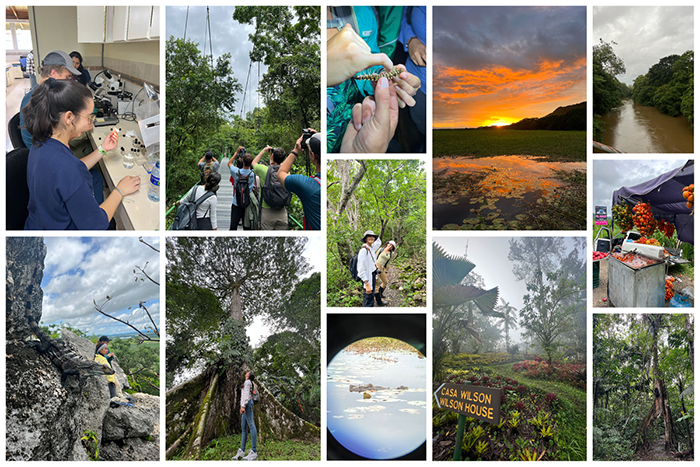FNR Field Report: Arlene Polar Piñeiro
Students from Purdue Forestry and Natural Resources took their classroom knowledge to the field for summer internships and paid positions across the country, gaining valuable experience, hands-on training and career guidance. The FNR Field Reports series will offer updates from those individuals as summer positions and experiences draw to a close.
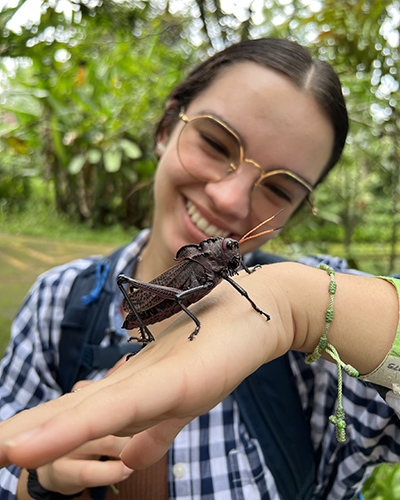 Sophomore wildlife major Arlene Polar Piñeiro spent the nearly a month in Costa Rica, taking a Tropical Biology for Undergraduates course through the Organization for Tropical Studies (OTS), a non-profit consortium of which Purdue is one of 50 allied universities worldwide.
Sophomore wildlife major Arlene Polar Piñeiro spent the nearly a month in Costa Rica, taking a Tropical Biology for Undergraduates course through the Organization for Tropical Studies (OTS), a non-profit consortium of which Purdue is one of 50 allied universities worldwide.
Polar Piñeiro, a San Juan, Puerto Rico, native saw the course advertised on a flyer in Lilly Hall of Life Science and knew that the opportunity to study abroad in the fields of tropical ecology, conservation and methods in field research would fulfill her Emerging Leader Scholar requirement of a high impact summer.
The course, which took place from June 29 to July 25, brought students to three OTS stations across Costa Rica: La Selva Biological Research Station, Palo Verde Research Station and Las Cruces and Wilson Botanical Garden Research Station. Students learned a wide array of facts and research procedures, while gaining field experience in entomology, forest relationship, botany and many other topics.
Thanks to Polar Piñeiro’s Environmental Science and Conservation (FNR 125) coursework, she was able to apply knowledge about ecological principles, resource management, conservation and biology to her summer studies, while also gaining experience through hands-on research.
“The most challenging part of this course was the individual investigation each student had to undertake,” Polar Piñeiro explained. “For my investigation, I decided to investigate bryophyte diversity in different sites depending on the water source sampled. This was challenging because one had to plan, prepare and do an investigation as well as finish a presentation in a short amount of time. We only had a span of a few days for our individual research. The most challenging part of this was overcoming the uncertainty of where my 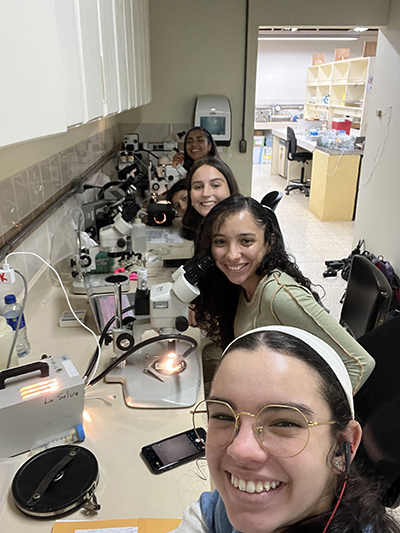 investigation was going. To overcome this, I talked it over with my TA’s and decided that a change in methodology would be the correct choice in facilitating the end of my sampling and information processing, therefore yielding the results necessary to complete every step.”
investigation was going. To overcome this, I talked it over with my TA’s and decided that a change in methodology would be the correct choice in facilitating the end of my sampling and information processing, therefore yielding the results necessary to complete every step.”
The research saw Polar Piñeiro take samples from a river and three different ponds, including still water and running water. She then divided the samples by morphology and found that most bryophytes were different, even in the still water samples she collected. Only two bryophyte morphologies were found in both running water and still water, meaning only those two had characteristics to flourish in those ecosystems.
Despite the difficulties she faced, Polar Piñeiro, who is an environmental politics and policies minor and is working toward a Dean’s Scholars Certificate, is more determined than ever to make an impact on the natural resources field.
“Thankfully, this experience did not change my career goals,” she said. “But, it did show me that field work is not what I thought it would be; it turned out to be more fun and interesting. Additionally, it also solidified that I wish to work with the environment.”
In addition to the investigation, Polar Piñeiro and her fellow students were able to interact with and appreciate their surroundings.
“Some of my favorite parts of my experience included visiting an organic Cacao Farm called Best Chocolate, Sarapiqui, where we had a tour around the cacao plantation and the owner told a beautiful rendition about the natives' belief in the cacao tree,” Polar Piñeiro shared. “Additionally, we went to an activity together with Finca Cantaros, tree planting as the first step in a forest rehabilitation project. All of these are great memories, but the best thing was being able to adventure into the forest, not knowing which wildlife one would encounter that day.”
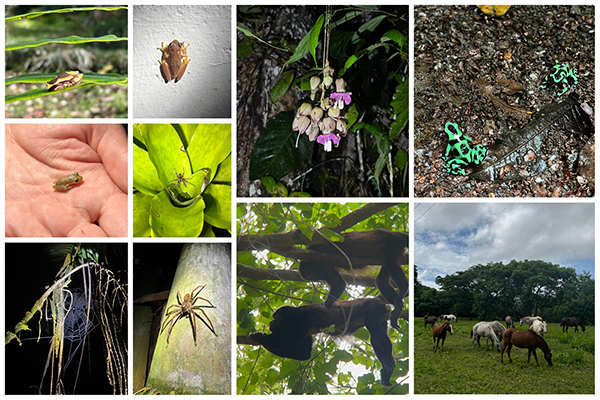 Wildlife photos from a howler monkey to spiders and frogs found in Costa Rica by sophomore wildlife major Arlene Polar-Piniero.
Wildlife photos from a howler monkey to spiders and frogs found in Costa Rica by sophomore wildlife major Arlene Polar-Piniero. The impact the experience had on Polar Piñeiro also came through the people she interacted with, a group of 12 students representing colleges and universities in six states – Iowa (Grinnell College), Colorado (Colorado College, two students), Connecticut (Wesleyan University), Washington (Western Washington University),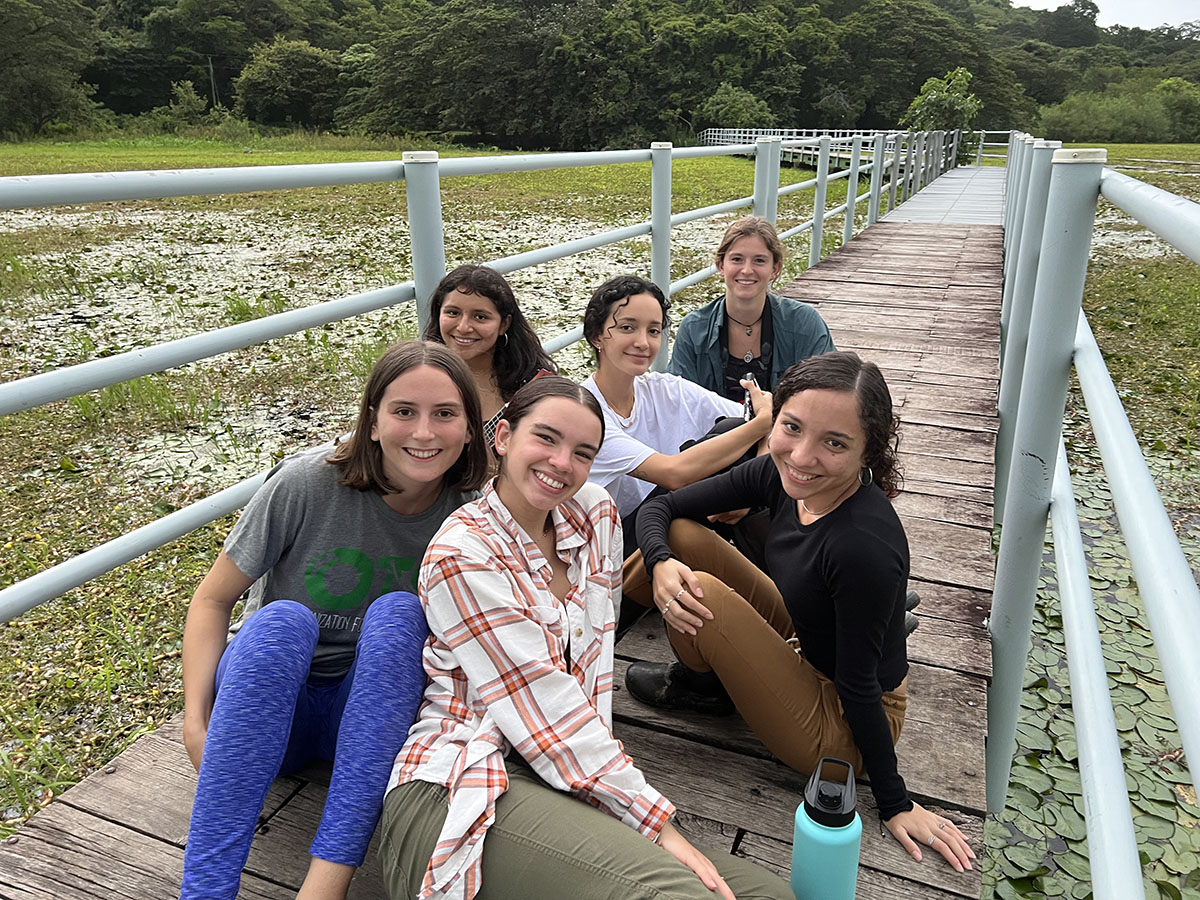
“Something that made this experience unforgettable was the bond reached by the student group,” Polar Piñeiro said. “Being able to live, share moments and learn from one another was unique. Sharing with contemporary students with the same interests felt unreal. Knowing that there are so many students from different backgrounds interested in working towards the same goal gave me hope and motivated me to push harder for a brighter future.”
